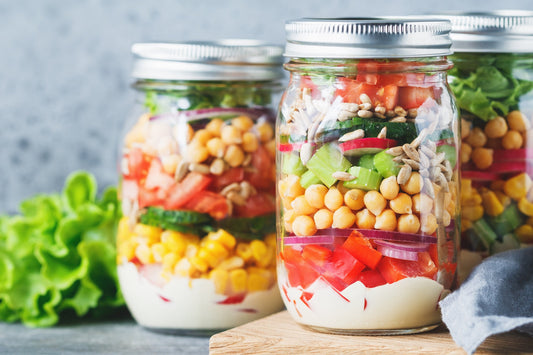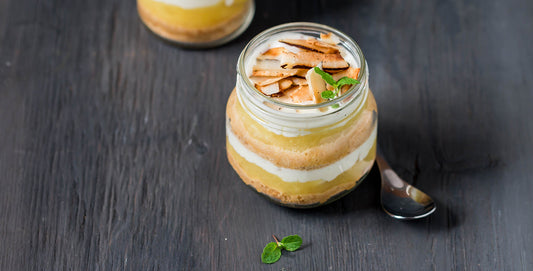Parchment paper is a critical tool in baking and cooking. Its versatility makes it extremely popular in most households. But can parchment paper compostable? Let’s delve into the factors that influence the degradability of parchment paper.
- Parchment Paper: What is it? Common Applications & Benefits of Parchment Paper
- Butcher Paper Vs Parchment Paper: Can I Use Butcher Paper Instead Of Parchment Paper?
- Can Parchment Paper Go In The Air Fryer? How to Use Parchment Paper in an Air Fryer
- Can You Microwave Parchment Paper? How Long Can You Microwave Parchment Paper?
How Parchment Paper Is Made?
Parchment paper is made through a multi-step process involving wood pulp and silicone. The wood pulp is chemically treated to facilitate fiber binding when heated. The treated pulp is mixed with wax or silicone oil to act as a binding agent. This mixture is then run through a large, hot roller to create thin sheets of parchment paper. After shaping, the parchment paper is cut into various lengths and packaged for retail.
Is Parchment Paper Compostable?
Parchment paper can be a source of carbon for your compost pile and is generally compostable (as a brown component). However, certain types of parchment paper should be avoided in composting as they can contaminate your compost. Here are some types of parchment paper that should not be added to a compost pile:
- Any parchment paper with wax
- Glossy parchment paper
- Fluorescent-colored parchment paper
- Parchment paper coated with metallic foil
- Cooking parchment paper contaminated with fish, pork fat, or dairy products
There are two main types of parchment paper: unbleached (brown) parchment paper and bleached (white) parchment paper.
- Unbleached Parchment Paper: This type is considered the best option for your compost bin as it decomposes more easily and doesn’t contain harmful chemicals that might leach into your compost.

- Bleached Parchment Paper: Especially those treated with chlorine, can release dioxins, harmful to both the environment and human health. Dioxins can persist in the environment, accumulate in the food chain, and cause serious health problems. Therefore, choosing unbleached parchment paper is advisable as it is biodegradable.

Is Parchment Paper Biodegradable?
Biodegradation is when something breaks down due to exposure to air, heat, and moisture. Most parchment paper is made from paper and is biodegradable. However, the issue arises with the chemicals used to treat many types of parchment paper. The paper itself won’t leave harmful traces, but the same cannot always be said for the chemicals. Therefore, while parchment paper can be biodegradable, it’s not always environmentally friendly.
How to Dispose of Parchment Paper?
Composting Unbleached Parchment Paper: The first disposal method is composting. The ideal composting period is 4 to 6 weeks; however, parchment paper can take up to 90 days to fully decompose. The smooth coating of the paper acts as a barrier to bacteria in the compost, slowing the degradation process. To speed up decomposition, cut the parchment paper into smaller pieces, soak them in warm, soapy water, and then add them to your outdoor compost bin or home compost pile.
Recycling Bleached Parchment Paper: Bleached parchment paper is less biodegradable and should be recycled. Before placing parchment paper in the recycling bin, check with your local recycling facility to see if it’s accepted. As long as the parchment paper has not been used at temperatures higher than the manufacturer’s recommended limit, it can be reused.

Factors Affecting the Degradability of Parchment Paper
- Type of Parchment Paper:
- Unbleached Parchment Paper: Made from natural materials and not chemically processed, it’s typically easier to degrade.
- Bleached Parchment Paper: Chemically treated, containing chemicals that can slow down the degradation process.
- Coating Components:
- Silicone Coating: Used to create the non-stick property of parchment paper. Silicone is not biodegradable, affecting the degradability of parchment paper.
- Other Coatings: Some parchment papers may have other non-stick coatings that also impact biodegradability.
- Environmental Conditions:
- Temperature: High temperatures can promote biodegradation.
- Humidity: High humidity creates a conducive environment for microorganisms to grow and break down paper.
- Exposure to Microorganisms: Soil or decomposition environments rich in microorganisms can accelerate the breakdown process.
- Thickness of Parchment Paper:
- Thicker parchment paper can take longer to degrade compared to thinner parchment paper.
- Waste Management Conditions:
- Compost: Unbleached and silicone-free parchment paper can be added to compost if appropriate composting conditions are met.
- Landfill: In landfills, conditions for degradation are not as ideal as in compost, so parchment paper may take longer to break down.
Tips for Maintaining a Healthy Compost Pile
A healthy compost pile will decompose compostable parchment paper efficiently. Here are some tips for maintaining a healthy compost:
- Add the Right Materials: Aim for a balance of carbon-rich materials (like leaves and wood chips) and nitrogen-rich materials (like grass clippings, fruit and vegetable peels, and coffee grounds). This balance is crucial for healthy composting.
- Ensure Good Drainage: The compost pile should not be too wet. To prevent this, build your compost pile on a well-drained surface and allow excess water to drain.
- Add Water if Necessary: If your compost pile dries out quickly, add some water to keep it moist.
- Aerate the Compost: Regularly turning the compost pile with a shovel or rake adds oxygen, helping bacteria break down materials faster.
- Monitor Temperature: The ideal composting temperature is between 135-160 degrees Fahrenheit. If the compost pile gets too hot, turn it and mix in cooler materials (such as fresh grass clippings) to reduce the temperature.
Conclusion
Parchment paper can be composted and is generally biodegradable, though the process and environmental impact depend on the type and treatment of the parchment paper. By understanding these factors and managing your compost pile effectively, you can ensure that your parchment paper disposal is both efficient and environmentally friendly.
Related Articles:
- Can You Put Parchment Paper in Oven? Tips for Safe Use
- How to Use Parchment Paper to Cook Bacon in the Oven
- How To Use Parchment Paper To Wrap Sandwiches for Easy Carrying & Storing









